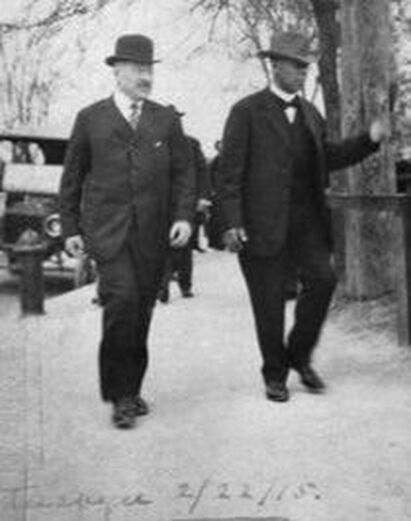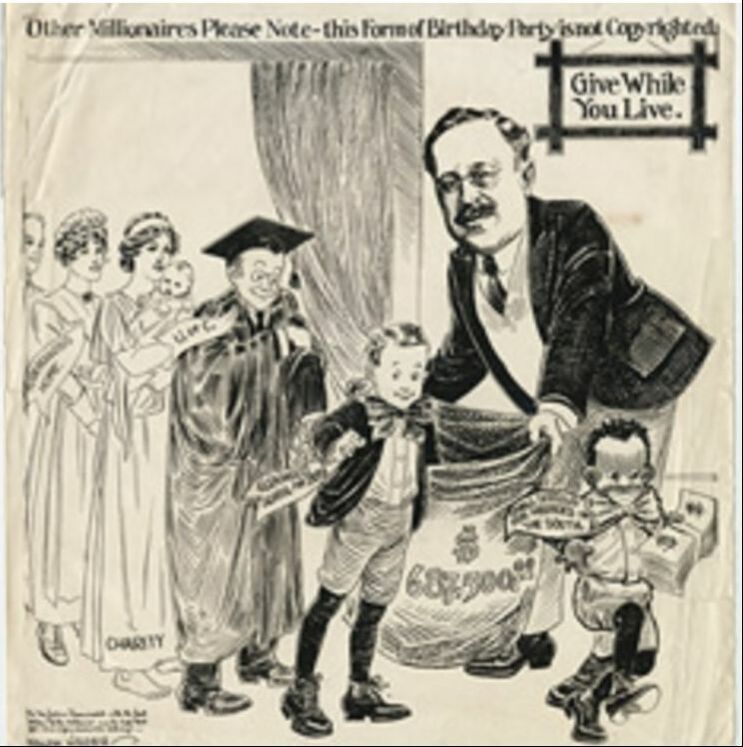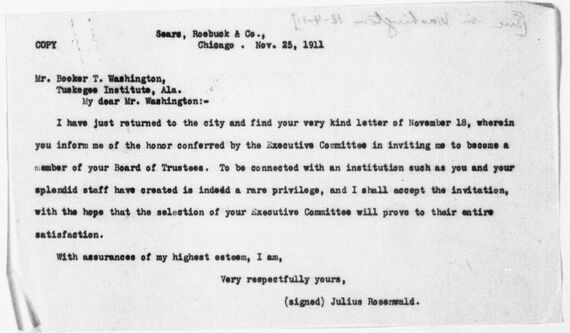A Historic Meeting
|
Top photo: 1915, Ascoli.
|
In 1911, Washington was seeking a new board member for Tuskegee. He asked L. Wilbur Messer, a mutual friend of Washington and Rosenwald, to suggest a prominent, white Chicagoan for the Tusketee Board of Trustees. Messer named Rosenwald. [31]
At Messer's suggestion, Rosenwald hosted a luncheon for Washington in Chicago; Washington offered him a place on the board of Tuskegee. Rosenwald and his family visited the Institute in October of 1911. He was deeply impressed. "I was astonished at the progressiveness in the school. I don't believe there is a white industrial school in America or anywhere that compares to Mr. Washington's Tuskegee." - Julius Rosenwald, in Ascoli [32]
Rosenwald was also profoundly saddened by the poverty of the African-American communities he saw. He felt a strong connection to the plight of African-Americans, comparing it to the difficulties Jews faced in Europe.
"Whether it is because I belong to a people who have known centuries of persecution, or whether it is because I am naturally inclined to sympathize with the oppressed, I have always felt keenly for the colored race." - Rosenwald, 1911, in Deutsch [33]
In 1912, Rosenwald donated $25,000* for teacher training at Tuskegee. Washington proposed a novel idea. (*$648,000 in today's dollars)
Recognizing that building public schools in the farmland around Tuskegee was an imperative if he was to have a stream of students for his college, Washington suggested to Rosenwald that he fund the construction of six rural schools, estimated at $600* each. Rosenwald would provide half of this amount, and the local African-American community would provide matching funds. [34] (*$15,500 in today's dollars) Rosenwald replied to Washington's letter four days later, agreeing with the plan to spend $2,800** on the rural schools. [35] (**$72,000 in today's dollars) Rosenwald and Washington started by building six schools near Tuskegee; Washington oversaw the construction.
|


